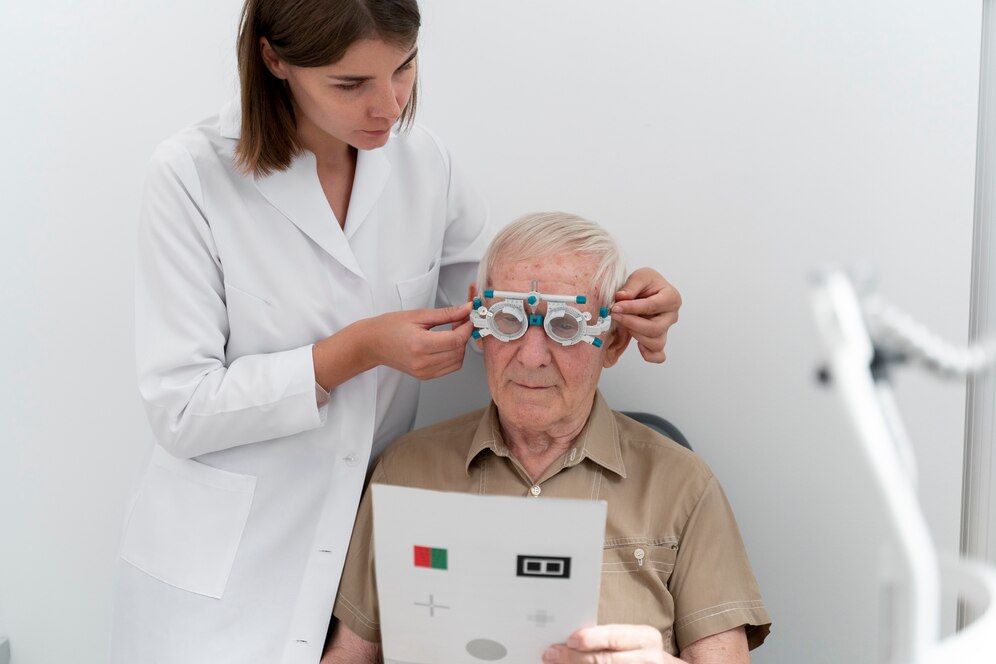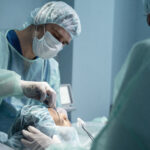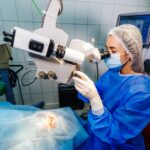Introduction:
Many individuals worldwide benefit from cataract surgery, one of the most popular and effective procedures available. Like any surgical operation, though, it necessitates meticulous post-operative care to guarantee a speedy recovery and avoid problems. By taking these important precautions, you can retain the greatest outcomes from your cataract surgery and have a quicker recovery. For expert advice and customized strategies to receive the best cataract surgery in Thane, Kalyan, or Dombivli, please contact us immediately.

One of the simplest and most popular medical treatments for cataracts, which are caused by clouding of the natural lens of the eye, is cataract surgery. The blurred vision caused by cataracts can make it difficult to see in dim light. A synthetic intraocular lens (IOL) is used instead of the clouded natural lens during the procedure. Despite the procedure’s seeming simplicity, healing from cataract surgery depends on taking certain precautions. Visit Anil Eye Hospital if you’re looking for the best cataract surgeons in Thane, Kalyan, or Dombivli. They offer the best cataract surgery along with cutting-edge, expert treatment with personal care. They lessen inflammation, guarantee appropriate healing, and stop infections. Below is a list of essential preventative steps that can help you protect your eye, reduce issues, and improve visual results.
10 Important Precautions to Take After Cataract Surgery
1. Don’t touch or rub your eyes.
Your eye will be sensitive and prone to infection following surgery. To raise the risk of infection and irritate the healing tissue, refrain from touching or rubbing your eyes. Although some discomfort or itching is normal, it’s important to fight the want to rub your eye. Using the recommended eye drops might help ease any irritation you may be experiencing.
2. Consistently Use Prescription Eye Drops
Your surgeon’s recommended eye drops are crucial for a speedy recovery. They frequently include lubricants to calm the eye, anti-inflammatory drugs to lessen swelling, and antibiotics to prevent infection. Usually for a few weeks following the procedure, use these drops as prescribed. Follow your eye specialist doctor‘s prescribed regimen because skipping doses or stopping too soon can cause problems or hinder the healing process.
3. Put on safety glasses
It’s crucial to protect your eyes following cataract surgery, particularly during the initial days. Your healing eye may be harmed by exposure to dusty conditions or intense sunshine. Sunglasses help shield the wearer from the sun and lessen light sensitivity, which is common following surgery. For the first week, it’s also advised to wear a protective eye shield to prevent unintentional bumps or rubbing while you sleep.
4. Steer clear of demanding activities
Steer clear of any tasks that require straining, bending over, or heavy lifting for the first two weeks following cataract surgery. These activities put more strain on the eye, which may lead to problems. Exercise regimens should be modified to reduce eye strain. Although light walking is usually acceptable, you should refrain from engaging in any high-intensity activities until you receive clearance from the best eye specialist in Thane.
5. Follow a Restful Sleep Routine
After cataract surgery, it’s important to pay attention to your sleeping position because it plays a critical role in the healing process. To avoid putting strain on the operated eye, do not sleep on its side. Sleep on the other side or on your back if at all possible. For the first week, many doctors advise sleeping with a protective barrier to prevent unintentional eye rubbing.

6. Keep a Clean Eye Area
To avoid infection, you must keep the area surrounding your eyes clean. For at least a week following surgery, keep water out of the eyes when taking a bath or shower. Avoid the eye area as much as possible and wash your face gently. Use a clean, soft cloth to pat around your face if necessary. Avoid swimming pools, hot tubs, or saunas for at least 4-6 weeks after surgery, as they harbor bacteria that can increase the risk of infection.
7. Avoid Using Cosmetics and Personal Care Items
If your recovering eye comes into contact with face creams, eye makeup, or sprays, they could cause damage. Makeup can irritate the eye and introduce microorganisms, especially around the eye area. After surgery, it’s advised to completely avoid wearing makeup for at least a week and to replace any old eye makeup to avoid reintroducing bacteria. Additionally, to prevent unintentional contact, stay away from facial creams, lotions, or sprays close to the eyes.
8. Steer clear of windy and dusty areas
Tiny particles carried by wind and dust might irritate or infect your recovering eye. For the first several weeks, keep your exposure to smoky or dusty conditions to a minimum. If you have to go somewhere dusty or windy, wear sunglasses or protective eyewear to minimize the risk of foreign particles entering your eye. A hat with a brim or a visor can also help shield your eyes from irritants when outdoors.

9. Hold off on starting to drive again
In the initial days following cataract surgery, you can experience hazy or erratic vision. Driving can be dangerous, so wait until your doctor gives the all-clear. Although visual clarity usually improves in a few days, you might require a follow-up eye exam to make sure your eyesight satisfies the requirements for driving. Although this varies from person to person, many people can resume driving in as little as one week.
10. Show up for every follow-up appointment.
Making follow-up appointments is essential to tracking your recuperation. Your doctor can evaluate the healing process, look for any indications of problems, and address any worries during these sessions. Share any symptoms you may be having during these consultations, such as pain, redness, or excessive tearing, so they can be addressed promptly. Regular check-ups are essential to ensure the healing process is on track and that your vision is improving as expected. Contact us right now for expert advice and customized strategies to receive the best cataract surgery in Thane, Kalyan, and Dombivli. Have faith in Anil Eye Hospital we have the best eye specialists in Thane to make your path to improved eye health pain-free and transparent.
Conclusion
Your recovery from cataract surgery can be greatly impacted by taking these ten important measures. You may lower your chance of complications, encourage quicker healing, and get the most out of your surgery by following these easy yet efficient actions. Remember to get in touch with Anil Eye Hospital if you have any inquiries or see any strange symptoms. Our top goal is your eye health, and we are here to support you at every stage of your journey to better, more vivid vision. To know more about cataract surgery and its process contact your best eye specialist in thane.





